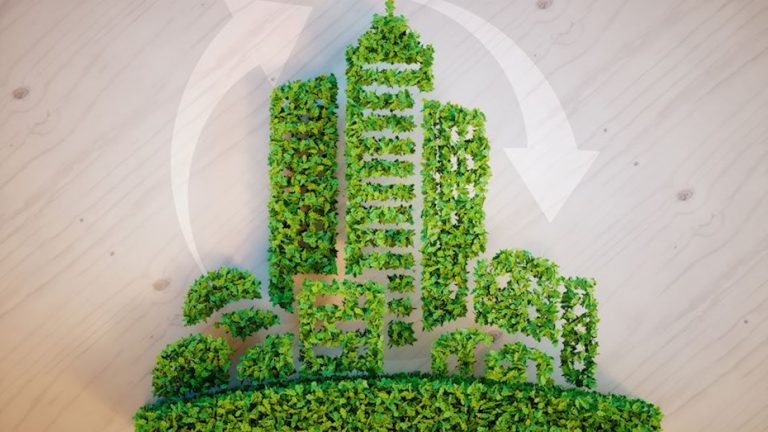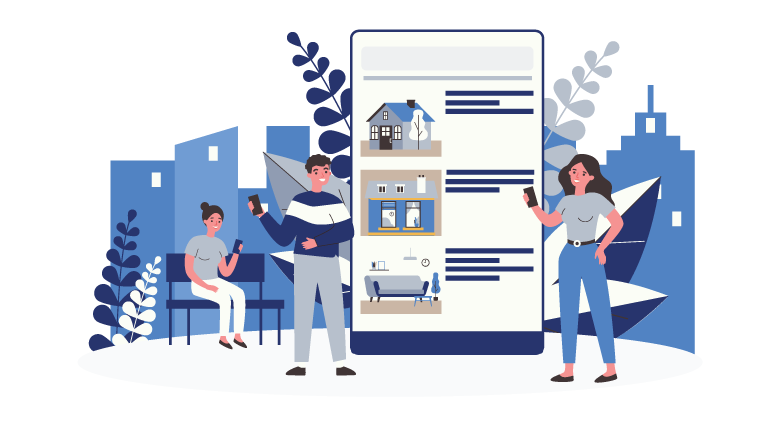Only for a quick refreshment. Sustainability consists of three pillars: economic, social, and environmental perspective or if you wish profit, people, and planet. So, to address it fully one needs to consider all three perspectives and integrate them in a smart strategy.
PropTech is all about management of the built environment from cradle-to-cradle, from the design phase, construction, usage, management and all the way to demolition. PropTech therefore has a crucial role in helping humans and society to enhance the control of massive built environment portfolio and optimize each and every step from cradle to cradle. Again, a quick refreshment of some facts before we address the issue:
• People spend 90% of their time in closed spaces primarily in buildings;
• Buildings produce 40% of carbon emissions;
• 55% of people live in cities;
• There is a potential to save 50% of building energy consumption until 2050.
So, what is PropTech’s role in sustainability? Never, has the time been more right for humans to take total control of the built environment. Technology is there, solutions are there so the biggest challenge is how to apply those to achieve the right blend of savings, comfort for end-users and reduce negative impacts on the environment. There are four key elements or levels which need to be considered and integrated into a total solution:
1. Sensorics or IoT
2. Big Data with Business Intelligence (BI)
3. Artificial Intelligence (AI)
4. Smart Management and Communication Interfaces (applications, software solutions and platforms)
In order to manage you need to understand, in order to understand you need analyses, in order to produce analyses, you need information. Information are therefore the key building blocks of smart building solution. Sensorics/IoT, ERP, BMS, GIS, etc. provide valuable data necessary to generate information for decision making. BI and AI-led by algorithms designed by smart, innovative, and creative employees to generate information. Based on smart information machine or human-led decisions can be made considering the three pillars of sustainability.
This all brings us to a complex set of tools and information which need to be simplified and translated into operational steps and activities. Here comes the challenge of designing a smart management platform that brings together all elements of a sustainable building or sustainable city for that matter. As we have mentioned individual technologies are there so it is crucial how one can integrate and interconnect them in one platform. This way individual operational solutions such as workspace solutions, energy-saving solutions, city traffic and pollution control, BIM preliminary building performance and carbon footprint analyses, city planning with smart data collection, video diagnostics for smart traffic can work as one coherent smart system.
As the amount of data and information is growing exponentially in the last decades in the scope that is non-comprehendible by people, smart machines (AI) and tools need to narrow them down to smart information as a basis for sustainable actions. To make the most use of digital technology, the latter needs to do the immense work of data processing and produce calculated results and analyses for people. Using these calculated results people can then engage their innovation, creativity and empathy for decision-making about appropriate actions that lead to sustainable results.
Digitization is moving all applications on the internet and mobile devices therefore it is paramount that management platforms are also web-based, intuitive and user friendly. They also need to be inclusive to allow for all stakeholders to be informed and to be able to contribute into the building efficiency. For example, with workspace solutions information about occupancy, air quality, social activities, etc. should be openly available to all end-users and vice versa, end-users should be able to actively respond to certain information and generate feedback into the system to improve it.
So, considering the facts above my opinion is that there is a very bright future for PropTech development and application. The effect on sustainability will be enormous and we can finally expect a new era of really smart self-driving buildings and cities, which will substantially improve people’s lives, reduce the negative effects on the environment and offer opportunities to investors and developers for substantial saving in all phases from cradle-to-cradle. PropTech is all about sustainability.





